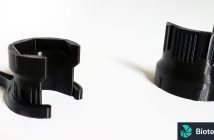I had the great privilege of getting to meet world famous aquarist and researcher Eric Borneman last year when I asked him to put on a coral identification workshop at a local fish store that I had been working at. The workshop was right up my alley…it was full of scientific information that you just don’t get from simply scratching the surface of an online article or book. Eric showed a moderately sized group of people how to properly identify many corals, from Acropora to Fungia, by a variety of methods and some simple tools. It was a superb experience and I felt that it greatly contributed to the knowledge of many local reef keepers. When I initially started this blog site, one of the first things that came to my mind was tapping the vast knowledge of Eric at least one more time, and hopefully furthering aquarium knowledge to a larger and more widespread audience.
For those of you that don’t know, Eric is a successful author and researcher that has been giving speeches and workshops all over the United States. Additionally, Eric is active on various aquarium related forums like the Marine Depot Forum and has authored several books and probably over a hundred articles. He travels all over the world and gets to visit exotic locations and see pristine coral reefs.
Eric currently lives in the Houston area and is working on getting his PhD from the University of Houston in the Department of Biology and Biochemistry.
Alright, now that you’ve gotten to hear a little bit about the Mr. Borneman, it’s on to the actual email interview. I initially sent Eric a list of quick questions, but some of the questions will be modified at the time of posting to the blog. The questions are modified simply for ease of reading and clarity. The content of the questions will be the same.
AquaNerd: How, When, and Why did you get into the aquarium hobby?
Eric: I begain in 1990 with a freshwater tank to amuse my cats while I was away. I was terrible at freshwater, cats weren’t interested, and in a last attempt before I quit found a new store where the owner was just coming back from completing a Master’s in marine science in Sweden and was running the then “new” Berlin method. I quickly got a reef tank (55 gallons) and never looked back – and never had problems. I was pretty natural at it since I had been diving since I was 12 and knew reefs pretty well. Having a mini coral reef in my life kept a part of me always in the water, so to speak.
AquaNerd: Who has been your biggest inspiration? Your biggest supporter?
Eric: In terms of reefkeeping, my biggest inspiration is Carl del Favero, the gentleman who is described above. I have had few other inspirational figures in reefkeeping although there are many whom I respect greatly. My biggest supporter is hard because that could mean in terms of my life in this hobby or in terms of my personal aquariums. In the first case, I really can’t answer as I have had a lot of support over the years and have had many great friendships develop as a result, many “fans,” and even a stalker. In terms of my personal tanks, I have been fortunate as my girlfriend when I began was supportive, my parents have been supportive, and my wife has gone beyond supportive to an aquarist of great skill by her own right (though she would probably say by proxy, necessity and deny her abilities), while in fact I think she has more than a passing interest and is right beside me in the water and her knowledge of reefs and reef tanks is exceptional. I am fortunate to have not had a spousal/significant other relationship where the one partner resents or doesn’t support the other’s “hobby” or “obsession,” as the case may be.
AquaNerd: I, like yourself, pursued an education and career that were both related to the aquarium hobby. Seeing as how they are not glamorous, in terms of wealth, what possessed you to pursue a career that is so closely tied to the aquarium industry?
Eric: A constant love of coral reefs – since I was seven and first snorkeled Jamaica. It became apparent that I should be doing what I love for a career. My career is a coral reef ecologist with several interests and initiatives – coral breeding, coral restoration, and coral disease.
AquaNerd: What is your absolute favorite fish, coral, or invertebrate? I remember a certain orange spotted filefish you drooled over at the Coral Identification Workshop.
Eric: Yes, the orangespotted filefish is a favorite, as are puffers, boxfishes, frogfishes. I can’t say there is one favorite. Coral is especially hard, but Acropora palmata is forever the closest in my heart and in my work. I appreciate its importance and majesty even if it may not be the most attractive or behaviorally interesting. For invertebrates it is even harder as so many species exist and they are all so fascinating. Again, the difference is in favorites in a tank, or favorites on a reef. My reef choices aren’t kept in tanks.
AquaNerd: What is your favorite aspect of the hobby?
Eric: For me, its the ability to observe continuously for long periods of time and the learning and appreciation it brings and how it integrates into my work. I also like having that connection to coral reefs around me every day. More recently, I am learning to appreciate it as a learning tool and conservation tool with classrooms in my work with the Reef Stewardship Foundation.
AquaNerd: Since you seem to be an avid an SPS enthusiast, do you prefer deep sand beds and refugiums, or shallow/no sandbed and massive flow…and why?
Eric: I’m actually not an “SPS” guy. I seem to keep species I have had for a long time or those that are given to me (from FWS seizures, people leaving the hobby, donations, etc.). I have a lot of “SPS” corals (although I am reluctant to use that term since it is meaningless as there is a continuum of polyps sizes and polyp size means nothing in terms of husbandry or habitat), and I certainly appreciate their role, their look, and their varying challenges, but I am not a deliberate “SPS” keeper or fan. I am definitely a strong proponent of sand beds and refugiums and massive flow (in the right places) and feel all should be upsized relative to the norm in reefkeeping.
AquaNerd: What has been your favorite and/or most useful piece of reefkeeping equipment?
Eric: Lumenarc reflectors, followed closely by my surge tank and the wideflow powerheads now available.
AquaNerd: Since you travel a lot, what effect does this take on your personal aquariums?
Eric: None, since my wife is nearly my equal in her skills. When we both travel, we have tank sitters but this is always a stress and I have been the victim of “things go wrong as soon as you step out of the door” many times. This is one of the reasons I depend heavily on a natural system (also one of my major goals and promotions to others) so that I am not as dependent on equipment to keep things alive.
AquaNerd: Where all do you travel too and is it for personal or professional reasons?
Eric: The last time I took a personal travel vacation was in 2002 for a week to Aruba with my wife before we were married. I have taken personal days during work-related trips when my wife is with me, but almost everything now is professional. I’m afraid the list of places I have been is too long to cover and many places have been visited many times. I have been to almost every state in the country and then Canada, Mexico, Belize, Guatemala, Honduras, Panama, Chile, Easter Island, Fiji, Tonga, Australia, Indonesia, Malaysia, Thailand, Palau, Yap, New Zealand, Japan, South Africa, Italy, Switzerland, Sweden, Germany, Netherlands, Denmark, France, England, Spain, Portugal, Greece (in the next few weeks), Dubai, Cayman Island, US and British Virgin Islands, Jamaica, St. Martin, Puerto Rico, Martinique, Gauadeloupe, Dominica, St. Lucia, Aruba, Bonaire, Curacao, and Barbados.
AquaNerd: When not living and breathing aquariums, what other hobbies or activities do you partake of?
Eric: I am an avid if not obsessive reader, avid cook/foodie, and grow ethnobotanical plants.
AquaNerd: What is a good source, or the best source to learn about aquariums and corals?
Eric: Today, I am afraid there is no one source. There are some excellent books with specialized or basic solid information. Some of the best information is found in magazine/ezine articles (depending on the author), and trends and new findings are often best found on various Internet forums. Basic scientific and conservation knowledge is unfortunately something that comes with experience and formal education and training. It is possible to acquire this knowledge on one’s own, but it is hard to get average people to self educate by reading texts on ecology, biology, bicohemistry, marine science, primary literature, or even secondary literature. The best thing I think reefkeepers can do for understanding their aquariums, however, is to spend some time on coral reefs. Seeing the macroscale of reefs and relating it to their microcosm or mesocosm, I feel, would do more than any one information source. The caveat is that this experience must be coupled with solid understanding and skills that are unique to captive systems and to be aware of what constitutes good information from bad – and this is very problematic with the hobby since there are no “credentials” hobbyists possess to give them valid credibility. On the other hand, those with bona fide credentials may not have the best skills or knowledge of aquarium husbandry. The result is all too often conflicting and anecdotal knowledge purveyed by both very smart and capable persons as well as very not smart and not capable persons, to the confusion and detriment of those with the understandable inability to know the difference.
AquaNerd: What advice do you have for aspiring reefkeepers?
Eric: Recognize that a reef aquarium is not the ocean and that coral reefs are under extreme stress on a global scale. Every purchase should be made with this in mind, with the needs of every species needing to be met with extreme care and awareness of all limitations of the species, the aquarium habitat, and the abilities of the reefkeeper. Seek out all information prior to taking these lives into your care.
AquaNerd: Eric, thank you so much for your advice and contribution to the hobby. You have been a personal inspiration to me and I’m sure to so many others. Good luck with all of your ventures and travels, and again, thanks for everything.
Eric: Thank you so much.





